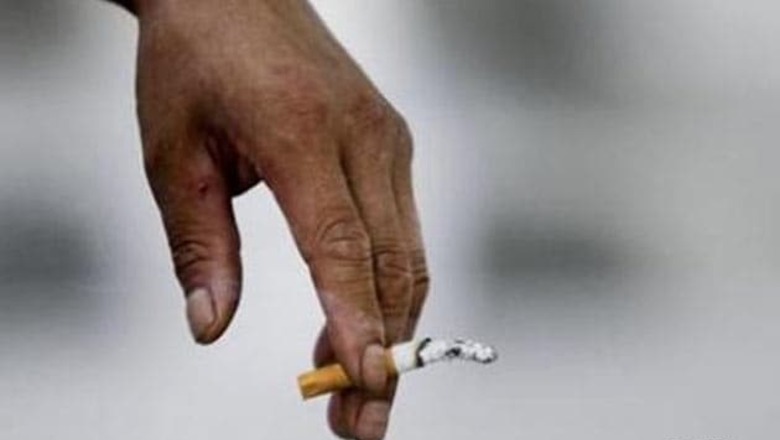
views
New York: The evidence is piling up that parents who smoke really should quit - or at least not smoke at home, a study said.
Children who breathe secondhand smoke are more likely to struggle with mental health problems, especially hyperactivity and "bad" behavior, according to the study, published in the Archives of Pediatrics and Adolescent Medicine.
While the findings add urgency to the push for parents to quit smoking or at least smoke outside the home, it remains unclear whether tobacco fumes actually take a toll on childrens' brains or if something else is at play, said researchers led by Mark Hamer of University College London.
"We know that exposure to secondhand smoke is associated with a lot of physical health problems in children, although the mental health side has not been explored," Hamer told Reuters Health in an e-mail.
In the United States, two of every three children between the ages of three and 11 are exposed to secondhand smoke. Meanwhile, one in five children aged nine to 17 have been diagnosed with some kind of mental or addictive disorder, according to the U.S. department of Health and Human Services.
Hamer and his colleagues studied 901 nonsmoking British children between the ages of 4 to 8, measuring levels of a byproduct of cigarette fumes in the childrens' saliva to gauge smoke exposure and having parents fill out a questionnaire about the childrens' emotional, behavioral and social problems.
The more secondhand smoke a child took in, on average, the poorer their mental health -- particularly for hyperactivity and conduct disorder, or so-called "bad" behavior, the study said.
Overall, about three percent of all children received "abnormal" scores of 20 or more on the Strengths and Difficulties Questionnaire, a 40-point scale with the highest scores representing the poorest mental health.
Compared to the 101 children who breathed in the least secondhand smoke, the 361 with the most exposure scored an average of 44 percent higher on the questionnaire -- 9.2 versus 6.4. Children were most likely to breathe secondhand smoke in their own homes.
The gap remained after researchers accounted for other factors that could affect mental health such as asthma, physical activity and the families' income and housing situations, although they noted that some unmeasured factor also couldn't be ruled out.
It also isn't yet clear how secondhand smoke might trigger mental troubles, though researchers suggested it could be due to genetics or possibly related to smoke's effects on chemicals in the brain such as dopamine, and Hamer noted further research is needed.
But Michael Weitzman at New York University Medical Center, who was not involved in the study, said the results strengthen the evidence that secondhand smoke, and possibly prenatal exposure to tobacco, causes mental health problems in children.
"Many people now recognize that childrens' secondhand smoke exposure increases their risk for Sudden Infant Death Syndrome, ear infections and asthma," he told Reuters Health in an e-mail.
"But secondhand smoke also poses a huge burden on the quality of life of children, their families and the larger society due to increased child mental health problems."


















Comments
0 comment